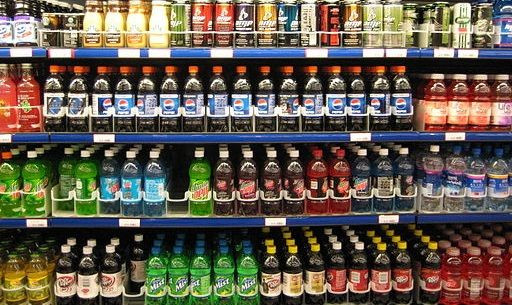Sugary Drinks May Increase Kidney Stone Risk; Coffee, Beer, and Wine Might Lower It

Yet another reason to cut down your intake of sugary drinks — kidney stone risk may increase in people who consume one or more servings of sweetened sodas per day.
What's more, suggests a new study, drinking coffee, tea, wine, beer, and orange juice may decrease kidney stone risk.
Kidney stones are among the most common urinary tract disorders, affecting over a million Americans per year, according to statistics from the National Institute of Diabetes and Digestive and Kidney Diseases (NIDDK).
They develop when substances that are normally passed through urine build up over time, eventually forming solid masses than can cause extreme pain when they lodge in the urinary tract.
Patients are told to drink plenty of fluids in order to dilute waste substances that might turn into kidney stones — especially water.
Researchers from Brigham and Women's Hospital in Boston decided to investigate whether certain beverages could reduce or increase kidney stone risk.
Assessing Kidney Stone Risk from Beverage Consumption
In an analysis of almost 200,000 research participants, found that people who consumed the most sugary drinks had a significantly higher risk of developing kidney stones than those who drank less.
"Our study found that the relation between fluid intake and kidney stones may be dependent on the type of beverage consumed," said senior author Dr. Gary Curhan in a news release.
While consuming larger amounts of artificially sweetened sodas was tied to higher kidney stone risk, other drinks like coffee, tea, and orange juice were linked to a lower risk of developing kidney stones.
The study, published on May 15 in the Clinical Journal of the American Society of Nephrology (CJASN), used data from three large ongoing surveys that follow participants every two years: the Health Professionals Follow-Up Study (HPFS), and the Nurses' Health Studies I (NHS I) and II (NHS II).
None of the 194,095 participants included in the analysis had kidney stones at the baseline, and all of them periodically completed questionnaires about their health, lifestyle, medications, and diet.
Over the course of the survey period, 4,462 people developed kidney stones.
The researchers divided those individuals into categories based on how much they consumed certain beverages, from one or more servings per day to less than one per week.
Analysis of the results revealed the following differences between the highest and lowest consumption categories:
Consuming More Sugary Drinks Linked to Higher Risk for Kidney Stones
- Sugar-sweetened soda was linked to a 23 percent higher risk
- Sugar-sweetened noncola drinks, like clear soda, were linked to a 33 percent higher risk
- Fruit punch was linked to an 18 percent higher risk
Consuming More of Other Beverages Linked to Lower Risk for Kidney Stones
- Caffeinated coffee was linked to a 26 percent lower risk
- Decaffeinated coffee was linked to a 16 percent lower risk
- Tea was linked to an 11 percent lower risk
- Wine was linked to a 31 to 33 percent lower risk
- Beer was linked to a 41 percent lower risk
- Orange juice was linked to a 12 percent lower risk
Possible Explanations
The study only finds a correlation between certain beverages and kidney stone risk, and it's unclear whether or how sugary drinks might lead to kidney stones.
Dr. Curhan suggested to Reuters that sugar might be implicated because of a role in the body's processing of calcium, which is a mineral that sometimes builds up in kidney stones.
Another explanation could be that sugar contributes to obesity, which is in turn linked to kidney stone risk, Dr. Elaine Worcester of the University of Chicago told Reuters.
More studies are needed to investigate the roles that different beverages might play in the development of kidney stones, say the researchers, but their findings are a good place for doctors to start.
"Although higher total fluid intake reduces the risk of stone formation, this information about individual beverages may be useful for general practitioners seeking to implement strategies to reduce stone formation in their patients," said author Dr. Pietro Manuel Ferraro, of the Catholic University of the Sacred Heart in Rome, in the press statement.
Source:
Ferraro P M, Taylor E N, Gambaro G, Curhan C. Soda and Other Beverages and the Risk of Kidney Stones. Clinical Journal of the American Society of Nephrology (CJASN). 2013.



























